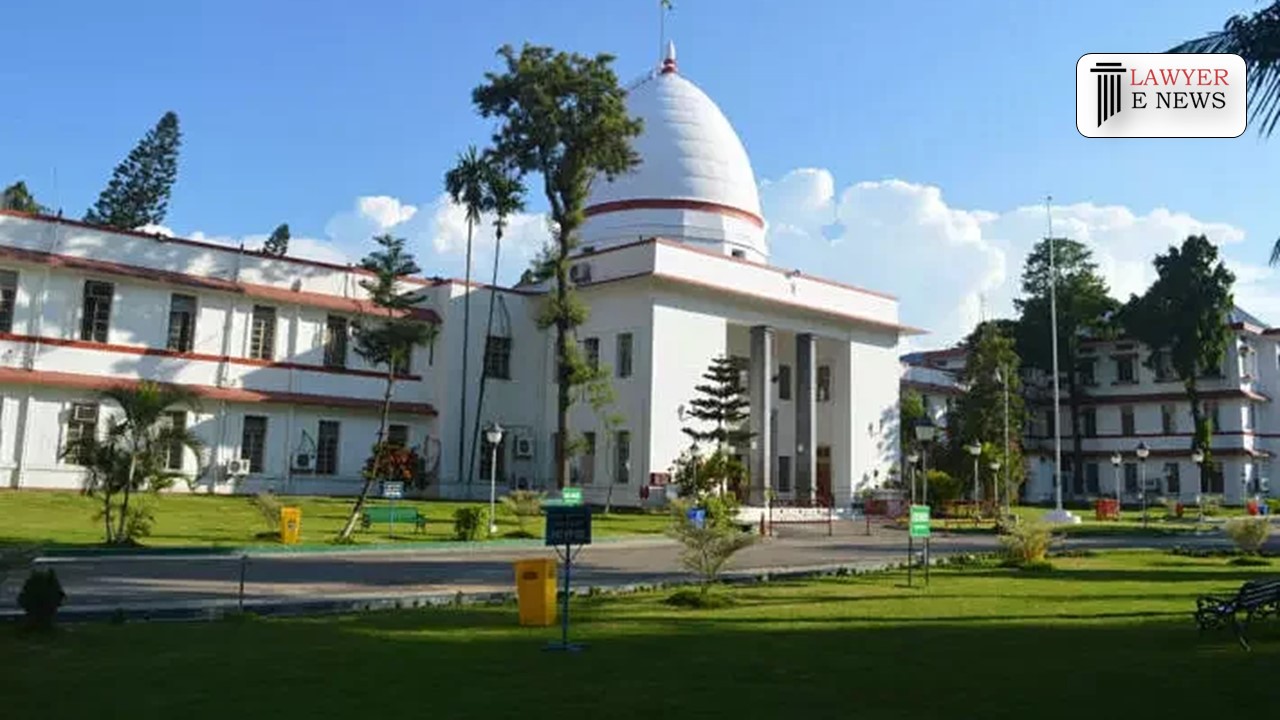-
by Admin
15 February 2026 5:35 AM



On September 5, 2024, the Gauhati High Court, in the case of Sahid Ahmed @ Soid Ahmed and Saddam Hussain @ Sadu @ Amir Hussain v. The State of Assam (Criminal Appeal No. 431 of 2017), overturned the conviction of the appellants who were earlier sentenced to 27 years of imprisonment for gang rape and house trespass under Sections 376D, 458, and 352 of the Indian Penal Code (IPC). The court allowed the appeal, citing inconsistent witness testimonies, lack of medical corroboration, and unreliable evidence, ruling that the prosecution had failed to prove the charges beyond a reasonable doubt.
The case originated from an incident on January 1, 2017, where the prosecutrix alleged that Sahid Ahmed and Saddam Hussain broke into her house at night and committed gang rape. The prosecutrix, a married woman, claimed that the accused entered her house by breaking through bamboo walls and sexually assaulted her while her children were present. Following the trial in the Sessions Court, Karimganj, the accused were convicted and sentenced to rigorous imprisonment for 27 years under Section 376D (gang rape), 10 years under Section 458 (house trespass), and three months under Section 352 (use of criminal force).
Inconsistencies in Testimony of the Prosecutrix: The High Court found several contradictions in the prosecutrix's statements at different stages of the trial. The court noted that the version of how the accused entered the house changed between her FIR, her statement under Section 164 CrPC, and her testimony before the court. The prosecutrix initially claimed that the accused broke open the door, but later said they entered through a gap in the bamboo walls. The inconsistencies cast significant doubt on the prosecution's version.
“The narrative of the prosecutrix as regards the entry of the accused persons into the house... is inconsistent and lacks coherence,” the court observed [Para 26].
Medical Evidence Fails to Corroborate the Allegations: The medical examination conducted five days after the alleged incident revealed no signs of physical injury or recent sexual intercourse. The prosecutrix did not report any significant injuries to her private parts, and there was no medical evidence to support the claim of a prolonged assault lasting 40-50 minutes.
"There was no sign of recent intercourse; no injury was found on her body or private parts," the court quoted from the medical report [Para 28].
Lack of Forensic and Corroborative Evidence: The court criticized the investigation, noting that no forensic evidence was recovered from the crime scene, such as the kerosene lamp the prosecutrix claimed was lit during the incident. The prosecution failed to produce any independent witnesses, including the children present during the alleged assault.
“The investigating officer did not seize any kerosene lamp, nor did he attempt to record the statements of the children who were allegedly present at the time of the incident,” the judgment pointed out [Para 34].
Delay in Lodging the FIR: While the court accepted that the delay of four days in lodging the FIR could be attributed to the absence of the prosecutrix’s husband, it found that the explanation provided for the delay was insufficient. The court opined that such delays could have led to suspicion about the fabrication of the case.
“The delay in lodging the FIR, though explained, does raise certain doubts given the circumstances,” noted the court [Para 25].
The Gauhati High Court, after examining the evidence and testimonies, concluded that the prosecution had failed to prove the charges against the accused beyond a reasonable doubt. The court emphasized that for a conviction in serious offenses like gang rape, the testimony of the prosecutrix must be consistent, reliable, and corroborated by medical or forensic evidence.
"In a serious charge like Section 376D, IPC, the prosecution must establish the case beyond reasonable doubt, which it has failed to do," stated the court [Para 41].
As a result, the court set aside the trial court's conviction and ordered the immediate release of the appellants, provided they were not required in any other case.
The Gauhati High Court acquitted the appellants Sahid Ahmed and Saddam Hussain, overturning their conviction for gang rape and house trespass. The judgment highlights the importance of consistent testimonies, medical corroboration, and thorough investigation in cases involving serious criminal charges. The court’s decision reinforces the principle that any conviction must be based on evidence that leaves no room for doubt.
Date of Decision: September 5, 2024
Sahid Ahmed @ Soid Ahmed & Anr. v. The State of Assam
